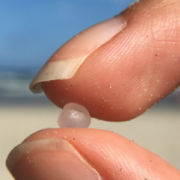(Thread IKs:
Stereotype)
|
err posted:Have any lived through a mass extinction event tho yes, me
|
|
|
|

|
| # ? May 25, 2024 09:53 |
|
bedpan posted:those things happened in the past but that was history and history has ended
|
|
|
|
Car Hater posted:"It's named Phoenix, it's supposed to burn."
|
|
|
|
Stereotype posted:
Why are they putting aviation fuel of any kind in the tickets?
|
|
|
|
I do like that the oil companies can't even be bothered to pretend anymore its all lip service from here
|
|
|
|
|
Soggy Muffin posted:Earth is just a giant Easter island, we trapped on this bitch with no where to go. Slowly we consumes ourselves to death while we build pointless resource intensive monuments That would require outside interference then, since the easter islanders (careful stewards of their environment, and smarter than the average human) got rect by european contact: https://www.youtube.com/watch?v=nCyzrie_les&t=2s luckily, human civilisation results in smart people being replaced by stupid people, otherwise this righting of a wrong wouldn't have happened.
|
|
|
|
Rock Puncher posted:I do like that the oil companies can't even be bothered to pretend anymore Why should they pretend? They're rewarding to destroying the planet, so they will continue to destroy the planet for their blood money.
|
|
|
|
Hubbert posted:domes i regret to inform you this guy owns
|
|
|
|
We need to build domes in plastic.
|
|
|
|
quiggy posted:i regret to inform you this guy owns Typical domer 
Pingui has issued a correction as of 23:38 on Jul 16, 2023 |
|
|
|
just keep the dome you have and put a plastic tarp over it
|
|
|
|
|
FlapYoJacks posted:Can you show me where in my post I said California was going to stop farming? You didn't say that California was going to stop farming. You didn't say anything that was technically wrong, but did present facts in a way that could be perceived as disingenuous. It is a fact that farmers in the Southwest are using water at a rate that is unsustainable. It is also a fact that California has a disproportionate number of extraordinarily profitable companies with dizzying stock valuations and the aggregate value that the free market has said agriculture is worth pales in comparison. 2.5% of the entire economy is a true statement. However the word "just" is doing some heavy lifting here, and combined with "literally" implies that they should just drop that 2.5% of the economy and just focus on remaining 97.5% and they would be fine. I think that is a bad take. That 97.5% represents among other things social media companies, developing self driving cars, overpriced real estate and cranking out dumb movie sequels. I would argue instead that if one day California disappeared, the only industry the world would miss is agriculture. FlapYoJacks posted:Farming accounts for 2.5% of California GDP. Also a good reminder that we are literally destroying rivers, aquifers, and entire habitats for just 2.5% of Californias GDP. Let me know what you really meant to say.
|
|
|
|
Zeta Taskforce posted:2.5% of the entire economy is a true statement. However the word "just" is doing some heavy lifting here, and combined with "literally" implies that they should just drop that 2.5% of the economy and just focus on remaining 97.5% and they would be fine. I think that is a bad take. That 97.5% represents among other things social media companies, developing self driving cars, overpriced real estate and cranking out dumb movie sequels. I would argue instead that if one day California disappeared, the only industry the world would miss is agriculture yeah i started a post to this extent but i got lazy. ty there's definitely a lot of things wrong with ca, particularly cash crops, but the main reason liberals like to say "oh well we overproduce so much more food than we need everything is fine" is because california produces a shitton of food, unsustainably. this "value" gets lost amongst the fart apps, hollywoo marvel slop for manchildren, adtech, intel, more gig apps, ubers, doordashes, airbnbs, and iphones, so it's not very useful to use a percentage comparison. gdp is a joke anyways, don't use it
|
|
|
Zeta Taskforce posted:You didn't say that California was going to stop farming. You didn't say anything that was technically wrong, but did present facts in a way that could be perceived as disingenuous. It is a fact that farmers in the Southwest are using water at a rate that is unsustainable. It is also a fact that California has a disproportionate number of extraordinarily profitable companies with dizzying stock valuations and the aggregate value that the free market has said agriculture is worth pales in comparison. 2.5% of the entire economy is a true statement. However the word "just" is doing some heavy lifting here, and combined with "literally" implies that they should just drop that 2.5% of the economy and just focus on remaining 97.5% and they would be fine. I think that is a bad take. That 97.5% represents among other things social media companies, developing self driving cars, overpriced real estate and cranking out dumb movie sequels. I would argue instead that if one day California disappeared, the only industry the world would miss is agriculture. Do you work for the resnicks lol
|
|
|
|
|
Zeta Taskforce posted:
FlapYoJacks posted:Not when the crops are cash crops that shouldn’t be grown in a desert. Let me reiterate for your shitlib brain: We should not grow water-heavy cash crops in the desert. We should replace them with crops that aren’t awful for the environment.
|
|
|
|
FlapYoJacks posted:crops that aren’t awful for the environment. 
|
|
|
|
more awful than normal.
|
|
|
|
Xaris posted:yeah i started a post to this extent but i got lazy. ty What bothers me is more than producing a poo poo ton of food for humans unsustainably is producing a poo poo ton of food for animals unsustainably. What makes me really mad is producing a poo poo ton of food for foreign animals unsustainably. Quoting the article, its behind a paywall, I am using my free one per month to look at it. How a Saudi firm tapped a gusher of water in drought-stricken Arizona https://www.washingtonpost.com/politics/2023/07/16/fondomonte-arizona-drought-saudi-farm-water/ BUTLER VALLEY, Ariz. — A megadrought has seared Arizona, stressing its rivers and reservoirs and reducing water to a trickle in the homes of farmworkers near this desert valley. But green fields of alfalfa stretch across thousands of acres of the desert land, shimmering in the burning sunlight. Wells draw water from deep underground, turning the parched earth into verdant farmland. For nearly a decade, the state of Arizona has leased this rural terrain west of Phoenix to a Saudi-owned company, allowing it to pump all the water it needs to grow the alfalfa hay — a crop it exports to feed the kingdom’s dairy cows. And, for years, the state did not know how much water the company was consuming. The lack of information was a choice. Soon after the company, Fondomonte Arizona, arrived in the Butler Valley in 2015, state planners suggested asking the company to install meters and report its water use, according to a memo reviewed by The Washington Post. That way, the memo argued, the state could “at least obtain accurate information” on water drained from the valley — water that could otherwise serve as backup for booming urban areas. But the proposal “hit a stone wall,” John Schneeman, one of the planners, told The Post. It was spurned, he said, by officials in the administration of then-Gov. Doug Ducey (R) who were “cautious of tangling with a powerful company.” The proposal also ran headlong into a view, deeply held in the rural West, that water is private property that comes with access to land, rather than a public resource. The inaction was an early sign of how state officials gave leeway to Fondomonte as a global fight for water took root in the Arizona desert. Leaving water unprotected amid a drought worsened by climate change has been a boon to Saudi Arabia, where industrial-scale farming of forage crops such as alfalfa is banned to conserve the Persian Gulf nation’s limited water supply. A Post investigation — based on government documents and interviews with public officials, ranchers in the valley, farmworkers, and townspeople who live near the alfalfa fields — found that Arizona’s lax regulatory environment and sophisticated lobbying by the Saudi-owned company allowed a scarce American resource to flow unchecked to a foreign corporation. To advance its interests before the state, Fondomonte hired an influential Republican lawyer as well as a former member of Congress. And it sought to win over its rural neighbors, providing a high school with donations that included Fondomonte-sponsored sports bags and face masks emblazoned with the company logo to protect students from covid. David Kelly, Fondomonte’s general manager, said the company follows the same rules that govern farming operations throughout the state while going out of its way to save water and serve the community. “All we ask is to be measured according to the same standards as every other farming leaseholder on state land,” he said in an email. “Fondomonte has developed Butler Valley to be one of the most efficient and highly productive farms in not only Arizona, but the entire Southwest. Our Butler Valley operation utilizes best-in-class irrigation technology and equipment with the oversight and diligence of an experienced management team.” Fondomonte, he said, “should be heralded for its water efficiency.” State officials now acknowledge that decades of farming and explosive growth have dangerously diminished Arizona’s water reserves. The rising scarcity has deepened rifts between urban and rural communities and turned Fondomonte into a political flash point. The company is hardly alone in using state-owned land to irrigate crops: Fondomonte holds four of the roughly 20 state agricultural leases across Arizona’s three major transport basins, where state law allows transfer of water to cities. But its foreign ownership and strict limits on water use in its home country have fueled outrage here. Last month, the new governor, Democrat Katie Hobbs, unveiled a long-awaited study showing that groundwater in parts of the Phoenix area was insufficient to meet projected demand over the next century. Her administration also recently sought details about water use on state-owned land. Only after the state threatened to cancel Fondomonte’s leases last month did the company disclose how much it pumps annually in the Butler Valley, according to communications released as part of a public-records request. Its consumption is equivalent to that of a city of more than 50,000 people, experts said. The governor’s aides are now preparing plans not to renew Fondomonte’s leases in the Butler Valley when they expire next year, according to a staff recommendation obtained by The Post. A decision has not been finalized. If Hobbs acts, a confrontation with the company could follow, with implications not just for foreign companies with interest in American natural resources but also for the future of agriculture as drought intensifies in the Southwest and cities clamor for rural water reserves. The Saudi-owned farm has split the local community, where Holly Irwin, a La Paz County supervisor who has opposed Fondomonte’s presence for years, said that “foreign companies have come to take our water because they don’t have any left back home.” But Fondomonte has unlikely allies, including a cattle rancher in the Butler Valley whose land abuts Fondomonte’s farm. Boyce Andersen said he generally is “an ‘America first’ type of person” but is now just as concerned about the valley’s water being “taken by Phoenix” instead of flowing to livestock and crops. He faulted Arizona, not the foreign-owned firm, for the grim trade-offs facing the state. “Why did our government leadership allow this to happen?” he asked. Fondomonte’s lush alfalfa fields represent a decades-old Saudi strategy. An American engineer, Karl Twitchell, who cut his teeth in Arizona’s copper mines, served as an adviser to the first king of Saudi Arabia and led a U.S.-sponsored agricultural mission to the kingdom in 1942. That mission set in motion a years-long process of adapting desert farming methods honed in the American Southwest to similar conditions in Saudi Arabia. Fondomonte’s parent company, Riyadh-based Almarai, was founded three decades later by a Saudi royal and businessman, Mohammed bin Saud Al Kabeer, and two Irish brothers. The food and beverage giant is still chaired by a member of the Saudi royal family. In 2011, it acquired Luxembourg-based Fondomonte, which was operating farms in Argentina at the time, capitalizing on rising global food demand. The following year, the company incorporated Fondomonte Arizona and soon moved into La Paz County, one of the poorest and least-populated parts of the state. In 2014, it paid $47.5 million to purchase nearly 10,000 acres in Vicksburg, a town of about 500. In 2015, in the nearby Butler Valley, Fondomonte took over several agricultural leases, for the below-market rate of about $25 per acre. Those leases, totaling 3,500 acres of state land, will expire in February 2024 if not renewed. Fondomonte also expanded to California, eventually purchasing more than 3,000 acres across the border from Arizona, near the town of Blythe. Its farming operation there is built on another precious water source, the Colorado River, a key artery for several states that governments have allowed to dwindle to dangerously low levels amid hotter, drier conditions and chronic overuse by farming regions in the Southwest.
|
|
|
|
Gonna change my name to Crop Hater
|
|
|
|
ACAB works in so many ways.
|
|
|
|
FlapYoJacks posted:Let me reiterate for your shitlib brain: We should not grow water-heavy cash crops in the desert. We should replace them with crops that aren’t awful for the environment. How about we start with alfalfa and rice and see how far that gets us?
|
|
|
|
Zeta Taskforce posted:How about we start with alfalfa and rice and see how far that gets us? it’s a good start. Should also include lettuce in there as well.
|
|
|
|
Zeta Taskforce posted:What bothers me is more than producing a poo poo ton of food for humans unsustainably is producing a poo poo ton of food for animals unsustainably. What makes me really mad is producing a poo poo ton of food for foreign animals unsustainably. Quoting the article, its behind a paywall, I am using my free one per month to look at it. concerning
|
|
|
|
Maed posted:concerning looking into it.
|
|
|
Horseshoe theory posted:Why should they pretend? They're rewarding to destroying the planet, so they will continue to destroy the planet for their blood money. greenwashing was cool because potentially something good might come out of it but they realised they're just pissing money into the wind and decided to focus on terraforming this planet to dust
|
|
|
|
|
smoobles posted:here's an idea for Phoenix: stop existing. move somewhere else. In Elder Scrolls there's an elven city that moves to different places every so often is that something we could do to Phoenix through magic or ancient technology?
|
|
|
|
1glitch0 posted:In Elder Scrolls there's an elven city that moves to different places every so often is that something we could do to Phoenix through magic or ancient technology? America doesn’t know how to build anything anymore.
|
|
|
|
if america even tried to build silt striders they’d cost $1 billion each and the poor caravaners wouldn’t even have unions. I bet they’d cheap out on teaching them local geography and customs too
|
|
|
|
Plinkey and the Dome Plinkey and the Dome
|
|
|
|
One is a glutton, the other's a home
|
|
|
|
The only way forward that would even hope to sustain things is nationalization and control of multiple industries, especially farming. Agriculture decided by a market isn't reasonable or safe when we're playing a very tight resources game.
|
|
|
Gumball Gumption posted:The only way forward that would even hope to sustain things is nationalization and control of multiple industries, especially farming. Agriculture decided by a market isn't reasonable or safe when we're playing a very tight resources game. some sort of central planning and concerted effort might go some way to reducing the destruction we wrought but lol
|
|
|
|
|
Also happy first atomic bomb explosion day
|
|
|
|
Rock Puncher posted:some sort of central planning and concerted effort might go some way to reducing the destruction we wrought Maybe with modern technology and our increased ability to calculate and simulate we could avoid a lot of the problems previous attempts at central planning had. Better agricultural science along with better weather prediction and emerging machine learning technology to calculate all the data would really give us an advantage previous generations did not have. but lol
|
|
|
|
Gumball Gumption posted:The only way forward that would even hope to sustain things is nationalization and control of multiple industries, especially farming. Agriculture decided by a market isn't reasonable or safe when we're playing a very tight resources game. Nationalism of agriculture? I'm game. What could go wrong? https://www.un.org/en/chronicle/article/dry-tears-aral quote:The seeds of the Aral Sea basin water crisis were planted in 1959 when the Soviet Union picked Central Asia to serve as its cotton supplier.
|
|
|
|
Zeta Taskforce posted:Nationalism of agriculture? I'm game. What could go wrong? Oh tons of things but also tons of things are already. There needs to be some form of centralized planning because in the end it's primarily hard math and resource problems. Heavy regulation, whatever you want to call it there needs to be large scale orchestration. Forms of organization are neutral and different ones are needed at different times. We can use past mistakes to improve and refine.
|
|
|
|
Maed posted:my mom accidentally cut one of those with a chainsaw while cutting up a downed branch, she breathed in the poison ivy chemical and had to go to the hospital and get steroids for her lung inflammation, it was very scary. stay safe out there goons giant hogweed is also spreading rapidly thx to climate change, it's fun stuff quote:Its clear sap can cause blistering third-degree burns and even permanent blindness if it touches the body and is then exposed to the sun, through a phototoxic reaction.
|
|
|
|
gently caress COREY PERRY posted:I WILL LICK LICHEN OFF ROCKS AND LIVE FOREVER 
|
|
|
|
Gumball Gumption posted:Oh tons of things but also tons of things are already. There needs to be some form of centralized planning because in the end it's primarily hard math and resource problems. Heavy regulation, whatever you want to call it there needs to be large scale orchestration. Its a good plan if you assume that governments will always be run by wise, competent people who trust in science and experts, and will never do short term tricks to juice up their popularity before an election.
|
|
|
|

|
| # ? May 25, 2024 09:53 |
Zeta Taskforce posted:Its a good plan if you assume that governments will always be run by wise, competent people who trust in science and experts, and will never do short term tricks to juice up their popularity before an election. make chat gpt president
|
|
|
|































